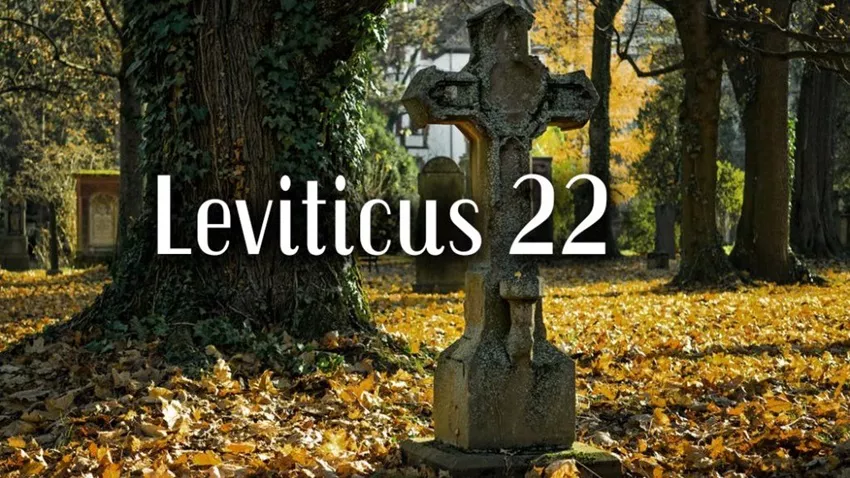Leviticus Chapter 22 Summary
Leviticus 22 provides instructions regarding the holiness and purity of the offerings presented to God, specifically those made by the priests and the people. It emphasizes that only those who are ceremonially clean can handle or consume the sacred offerings. The chapter outlines that animals for sacrifice must be free from defects, highlighting the importance of offering God the best of what is given. Additionally, the chapter stresses that the priests, who serve in the sanctuary, must maintain personal purity to avoid profaning the holy things. Leviticus 22 underscores that God’s holiness requires careful adherence to His commands in worship, sacrifice, and service.
Bible Leviticus Chapter 22
Welcome to read Leviticus Chapter 22. Here is the list of Exodus Chapter 22:
What Does Leviticus Chapter 22 Teach Us?
Leviticus 22 focuses on the holiness of the priests and the offerings made to God. It outlines specific regulations about the purity required of those who present offerings and the types of offerings that are acceptable to God. The chapter emphasizes the importance of maintaining the sanctity of worship, as both the priests and the offerings must reflect God’s holiness. Below are the key teachings from Leviticus 22:
1. The Holiness of the Priests
Leviticus 22 begins by stressing that priests must be ceremonially pure when offering sacrifices. They are instructed to avoid anything that might defile them, including contact with dead bodies (except for close family members). This reflects the principle that those who serve in God’s presence must be spiritually and physically clean, as they represent the people before God in the sanctuary (Leviticus 22:1-9).
2. The Integrity of Offerings
The chapter outlines regulations about the offerings brought to God, emphasizing that only animals without blemish should be offered. God requires offerings that are perfect and untainted because they symbolize His holiness. The principle here is that God deserves the best and that offerings to Him should not be given out of convenience or without care (Leviticus 22:17-25). This also shows that God values quality in the sacrifices made to Him, which is symbolic of the way He should be honored in all aspects of life.
3. Rules for Acceptable Offerings
Leviticus 22 provides further instructions on what makes an offering unacceptable. For example, offerings with physical defects, such as blind, crippled, or mutilated animals, are not permitted. This ensures that the sacrifices remain holy and pure, reflecting God’s standards. These regulations also highlight the importance of the Israelites’ relationship with God, where the act of giving is not about what is convenient, but about honoring God with the best they can offer (Leviticus 22:17-25).
4. No Offering from a Defiled Person
The chapter further specifies that only individuals who are ritually clean can present an offering to God. If someone is ceremonially unclean, their offering is not accepted. This reflects the idea that purity is required in both the giver and the gift. The principle is that both the worshiper and their act of worship must align with God’s holiness in order for the offering to be acceptable (Leviticus 22:4-9).
5. The Importance of Obeying God’s Instructions
Leviticus 22 teaches that following God’s instructions precisely is essential for acceptable worship. The Israelites are commanded to observe all these regulations without deviation. This reinforces the idea that worship is not simply a matter of ritual, but obedience to God’s commandments. Offering acceptable sacrifices and following the prescribed rituals are ways of showing reverence and obedience to God (Leviticus 22:31-33).
6. God’s Holiness and His Relationship with His People
The chapter concludes by reaffirming that God’s people are to keep His commandments and observe His laws so that they can maintain a right relationship with Him. The holiness of God is at the heart of these instructions. The laws about acceptable offerings and the purity of the priests underline the need for a reverent and obedient worship of God, showing that He is worthy of the highest honor (Leviticus 22:31-33).
Related topics:


